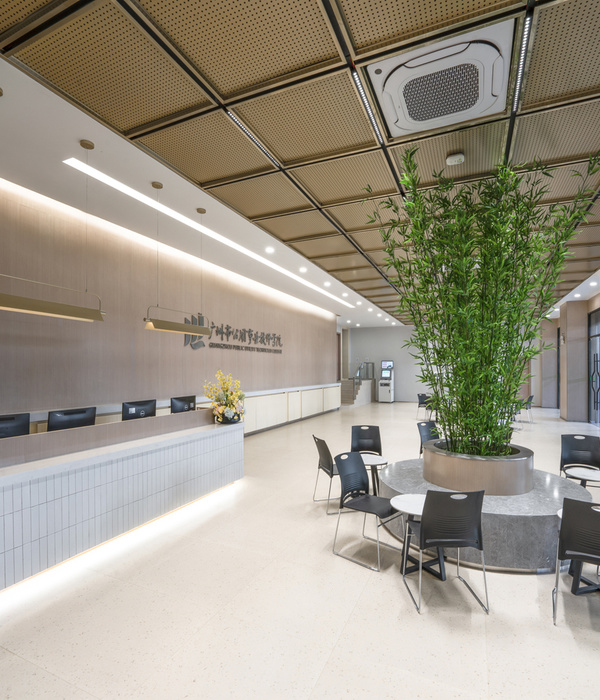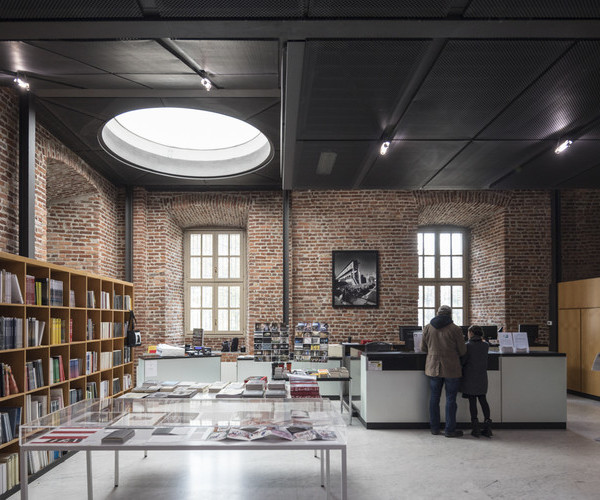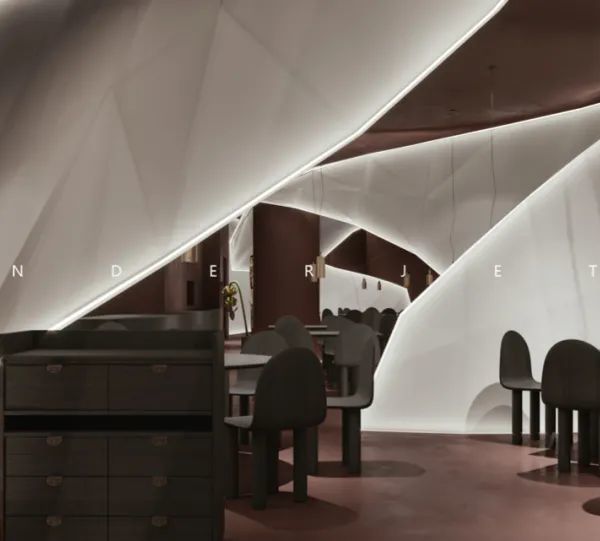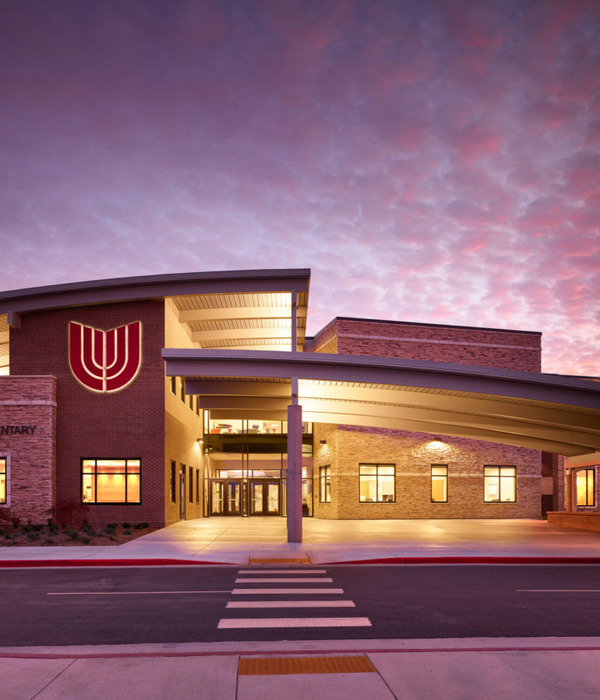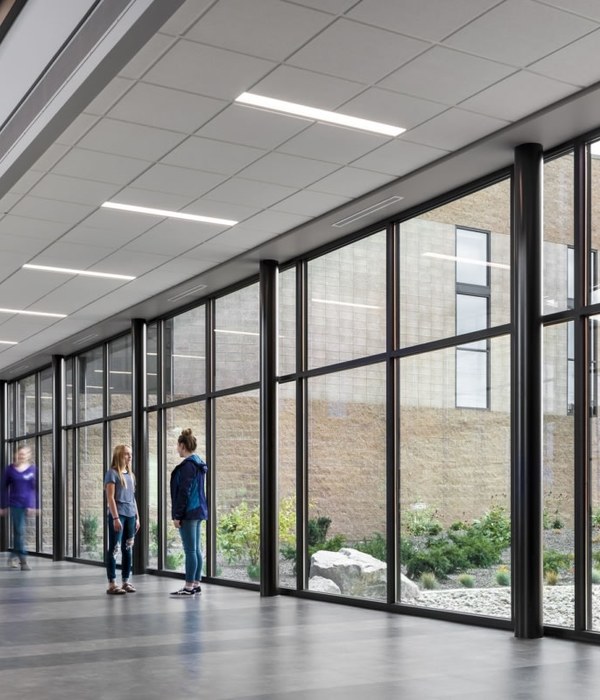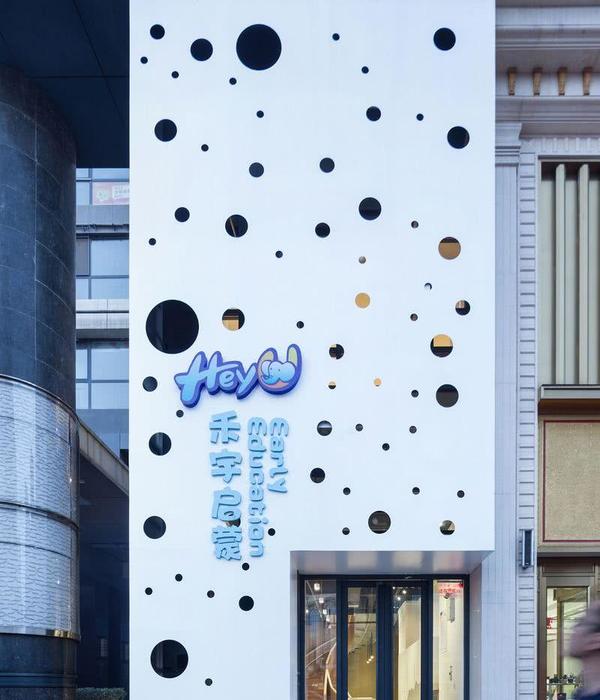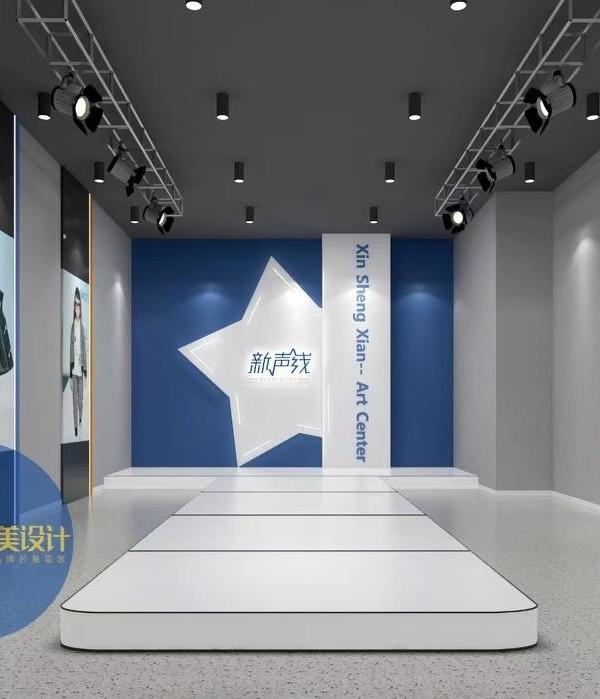- 项目名称:香港中文大学竹亭 | 数字技术与传统工艺的完美结合
- 功能:活动空间容量:200人
- 最大跨径:37米
- 重量:6800公斤(竹子)
© Michael LAW
(迈克尔法律)
建筑师提供的文字说明。ZCB 竹阁是 2015 年夏季在香港九龙湾建造的建筑工业委员会零碳大厦 (ZCB) 的公共活动空间。它是四层楼高的长跨弯曲活动竹栅壳结构,占地面积约 350 平方米,座力 200 人。
Text description provided by the architects. The ZCB Bamboo Pavilion is a public event space built for the Construction Industry Council’s Zero Carbon Building (ZCB) in the summer of 2015 in Kowloon Bay, Hong Kong. It is a four-storey-high long-span bending-active bamboo gridshell structure with a footprint of approximately 350m2 and a seating capacity of 200 people.
© Michael LAW
(迈克尔法律)
它是由 475 个大竹竿建造而成,该竹竿在现场弯曲以形成该结构,并使用基于广东竹脚手架工艺的技术与金属丝捆绑在一起。该形状是一个大的 Diagrid 壳结构,它被向下折叠成三个空心柱。这些柱子搁在三个圆形的混凝土基础上。特制的白色拉伸织物在该结构上被拉伸,并且从这三个腿的内部被明亮地照亮。
It is built from 475 large bamboo poles that are bent onsite to shape the structure and that are hand-tied together with metal wire using techniques based on Cantonese bamboo scaffolding craftsmanship. The shape is a large diagrid shell structure that is folded down into three hollow columns. These columns rest on three circular concrete footings. A tailor-made white tensile fabric is stretched over the structure and is brightly lit from inside the three legs.
© Kevin NG
C.吴凯文
© Kevin NG
C.吴凯文
© Kevin NG
C.吴凯文
这项计划是建造业议会、香港中文大学及不同承建商共同努力的成果。它是由香港中文大学建筑学院的克里斯多夫·克罗拉教授领导的一个研究小组设计的。这项研究探讨了如何将计算设计工具战略性地插入到现有的施工方法中,以便获得更吸引人的和创新的建筑成果。ZCB 竹亭展示了这一点,并说明了如何通过引入数字找形和实时物理模拟工具来扩展香港竹脚手架建筑的濒危工艺。
The project is the outcome of the concerted efforts of the Construction Industry Council (CIC), the Chinese University of Hong Kong (CUHK) and different contractors. It was designed by a research team led by Prof. Kristof Crolla at CUHK’s School of Architecture. The research investigates how computational design tools can be strategically inserted into existing construction methods to allow for a more engaging and innovative architectural outcome. The ZCB Bamboo Pavilion showcases this and illustrates how the endangered craftsmanship of Bamboo Scaffolding Construction in Hong Kong can be expanded through the introduction of digital form-finding and real-time physics simulation tools.
Top view-bamboo skeleton
山顶-- 竹子骨架
该项目的设计是基于在中大建筑学院进行的建筑学学生设计实习。该设计是由研究小组与结构工程师和竹子顾问合作,利用数字物理模拟引擎、物理模型制作和大规模原型得出其最终形式。
The project’s design is based on an architecture student design internship held at the CUHK School of Architecture. The design was developed further by the research team in collaboration with structural engineers and bamboo consultants, using digital physics simulation engines, physical model making, and large-scale prototyping to derive its final form.
© Michael LAW
(迈克尔法律)
竹子是一种广泛使用的环保材料,在亚太地区、非洲和美洲以惊人的速度生长。它是一种极好的可再生自然资源,可吸收二氧化碳并将其转化为氧气。它强度大,重量轻,易于加工和运输。在香港,竹子主要出现在临时剧院、脚手架或宗教节日的建筑中。在全球范围内,它通常作为木材或钢的替代品,而不是利用材料独特的弯曲性能和强度的方式。相比之下,ZCB 竹亭提供了一种可供选择的建筑应用,最大限度地利用了这些潜在的材料特性。
Bamboo is a widely available, environmentally friendly material that grows abundantly and at remarkably high speeds in the Asia-Pacific region, Africa and the Americas. It is an excellent renewable natural resource which captures CO2 and converts it into oxygen. It is strong, light and easy to process and transport. In Hong Kong bamboo mostly appears in temporary theatres, scaffolding, or structures for religious festivals. Globally it is usually applied as a surrogate for wood or steel, rather than in ways that utilise the material’s unique bending properties and strength. In contrast, the ZCB Bamboo Pavilion presents an alternative architectural application that maximise these latent material properties.
Elevation 2
抬高术 2
展馆几何复杂,竹子的几何、尺寸和性能变化很大,脚手架行业不使用传统的建筑图纸进行直观的建筑。因此,构建项目挑战了架构师设计控制的界限。作为回应,开发了新的方法,将精确的数字设计系统与不一致的自然资源相结合,以处理这些无法预测的问题。
The pavilion is geometrically complex, bamboo has widely varying geometric, dimensional, and performative properties, and the scaffolding industry does not use conventional architectural drawings for its intuitive constructions. Building the project therefore challenged the boundaries of the architect’s design control. In response, new methods were developed that merged precise digital design systems with inconsistent natural resources in order to deal with these unpredictabilities.
© Michael LAW
(迈克尔法律)
ZCB 竹亭向更广泛的公众和设计界推广创新和生态建筑设计。它将用于举办倡导低碳生活、建设和发展的展览、表演和活动。通过推广大跨度建筑的可持续的、重量轻的建筑方法,该项目为 21 世纪传统广东工艺的发展寻找途径。
The ZCB Bamboo Pavilion promotes innovative and ecological architectural design to the broader public and design community. It will be used to host exhibitions, performances and events that advocate low carbon living, construction, and development. By promoting sustainable, light-weight building methods for large span architecture the project seeks ways for traditional Cantonese craftsmanship to evolve for the 21st century. © Kevin NG
C.吴凯文
覆盖面积:350 平方米 (含 425 平方米)。
功能:活动空间容量:200 人最大跨径:37 米高:12.3m(自由拱门高度:5.65 米) 重量:6800 公斤 (竹子)
Covered Area: 350 m2 (425m2 incl. footing area)Function: Event Space
Capacity: 200 people
Largest span: 37m
Height: 12.3m (free height of arches:5.65m)Weight: 6,800kg for bamboo & skin. (107,800kg incl. footing)
总#:475 根,总长度:2956 米,根部:12~15 厘米,顶部:8~12 厘米,杆长:≈7.2m,总重量:6,350 公斤,竹子完全干燥后。(湿态 7,100 公斤) 种:毛竹 (毛竹,毛竹) 年龄:平均 4 岁 (使用 3~5 岁竹材)
Total #: 475 poles used
Total Length: 2956m
Pole ø: Base: 12-15cm, top: 8-12cm
Pole length: ≈ 7.2m
Total weight: 6,350kg after complete drying of bamboo. (7,100kg in wet state)Species: Phyllostachys edulis (moso bamboo, mao zhu, 毛竹)Age: Average age is 4 years (between 3 and 5 year old bamboo is used)
材料:镀锌金属丝#交点:1107#重叠点:365(每重叠3领带)总#领带:3321
Material: Galvanized metal wire # intersection points: 1107 # overlaps: 365 (3 ties per overlap) total # ties: 3321
总面积:910 平方米#三角形:1278 总重量:450 公斤
Total area: 910m2 # of triangles: 1278 Total Weight: 450kg
具体的立足点:
Concrete footing:
#:3 直径:5.4 米高:0.5 米重:101 吨
#: 3 Diameter: 5.4m Height: 0.5m Weight: 101 tonnes
Architects The Chinese University of Hong Kong School of Architecture
Location 8 Sheung Yuet Rd, Kowloon Bay, Kowloon, Hong Kong
Category Other Structures
Principal Investigator Prof. Kristof CROLLA
Photographs Michael LAW
{{item.text_origin}}

